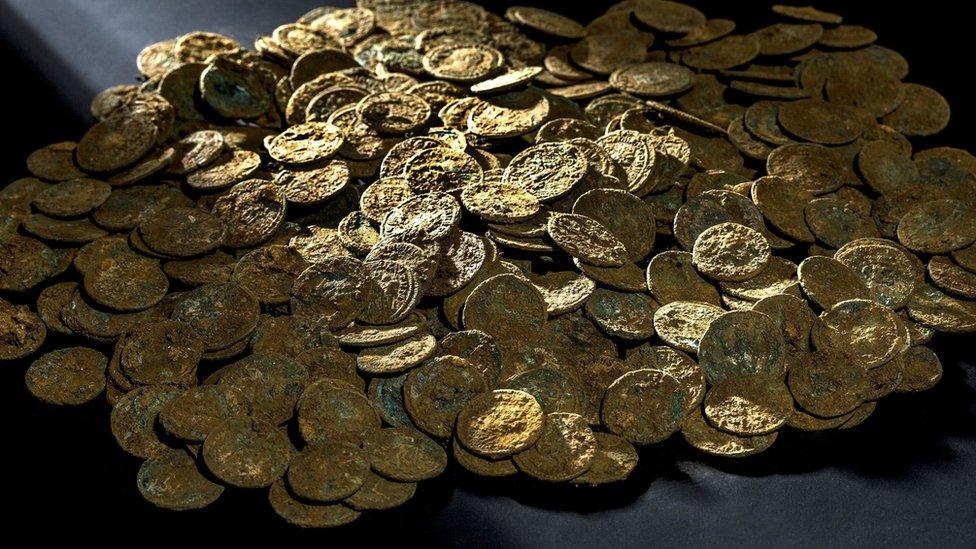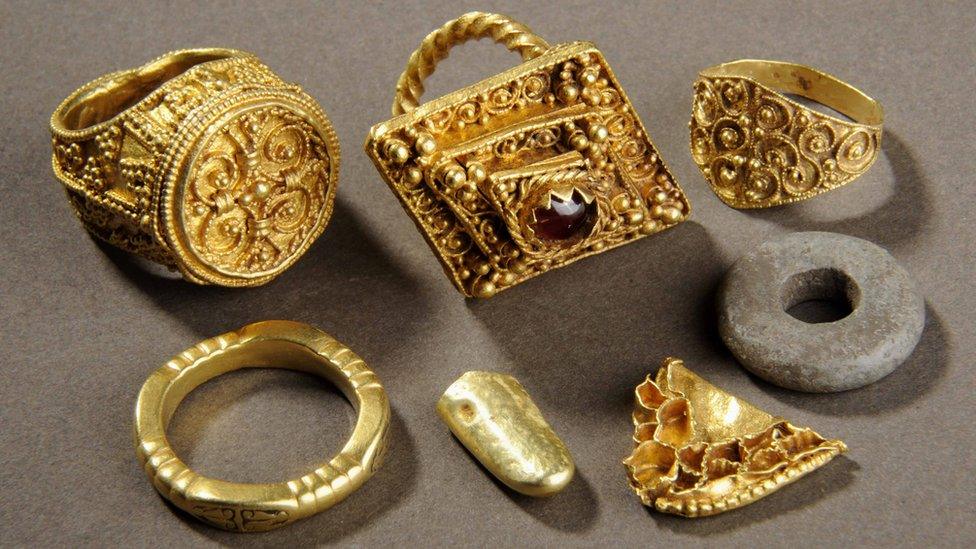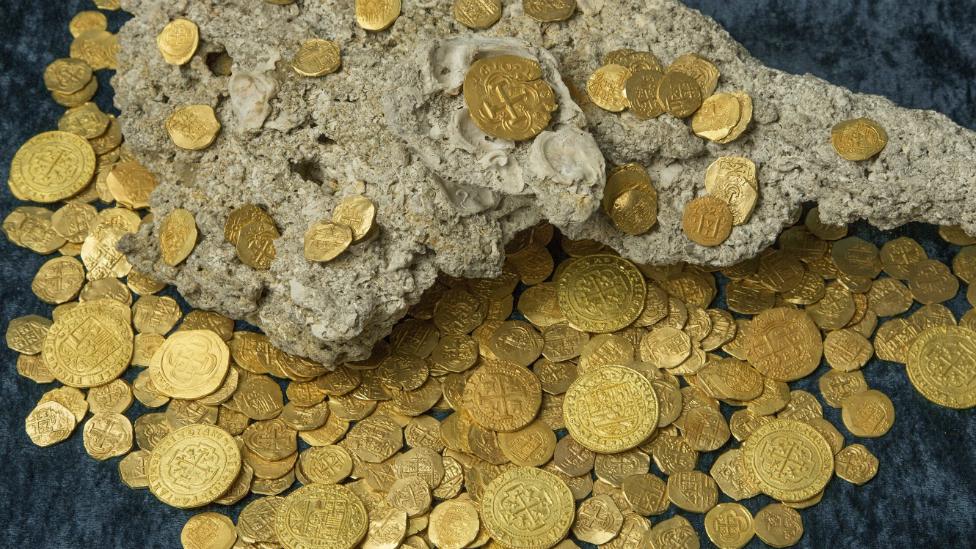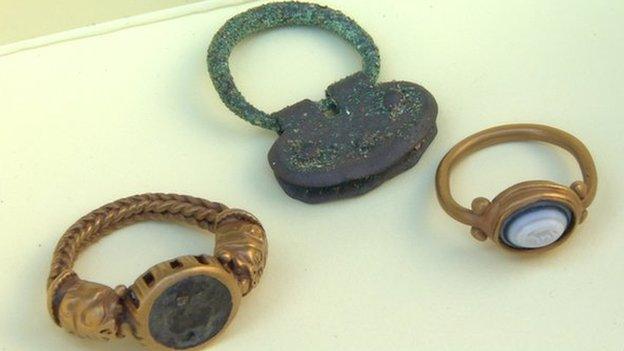Trove of ancient Roman coins found in Switzerland
- Published

The regional archaeological service said the coin trove is one of the biggest such finds in Swiss history
A Swiss farmer has discovered a huge trove of ancient Roman coins in his cherry orchard.
The stash of more than 4,000 bronze and silver coins is believed to have been buried some 1,700 years ago.
Weighing around 15kg (33lb), he discovered the coins after spotting something shimmering in a molehill.
The regional archaeological service said the coin trove was one of the biggest such finds in Swiss history.
The trove was unearthed in July in Ueken in the northern canton of Aargau.
Since a Roman settlement was discovered in the nearby town of Frick, just a few months before, he suspected the coins might be of Roman origin.
The farmer contacted the regional archaeological service who, after months of careful excavation, announced on Thursday that 4,166 coins had been found in excellent condition.

The coins are said to be in excellent condition
Some of the coins date from AD 274 and the rule of Emperor Aurelian. The find also included coins from the time of Emperor Maximian in 294.
Swiss archaeologist Georg Matter, who worked on the excavation, said what they found within the first three days "exceeded all expectations by far".
"As an archaeologist one rarely experiences something like this more than once in your career," he told Spiegel Online, external.
Coin expert Hugo Doppler said the coins were in such good condition it was clear they "were taken out of circulation right after they were minted."
He believes the owners hoarded the coins because "the silver contained in them guaranteed a certain value retention in a time of economic uncertainty."
- Published8 November 2015

- Published20 August 2015

- Published11 June 2015
